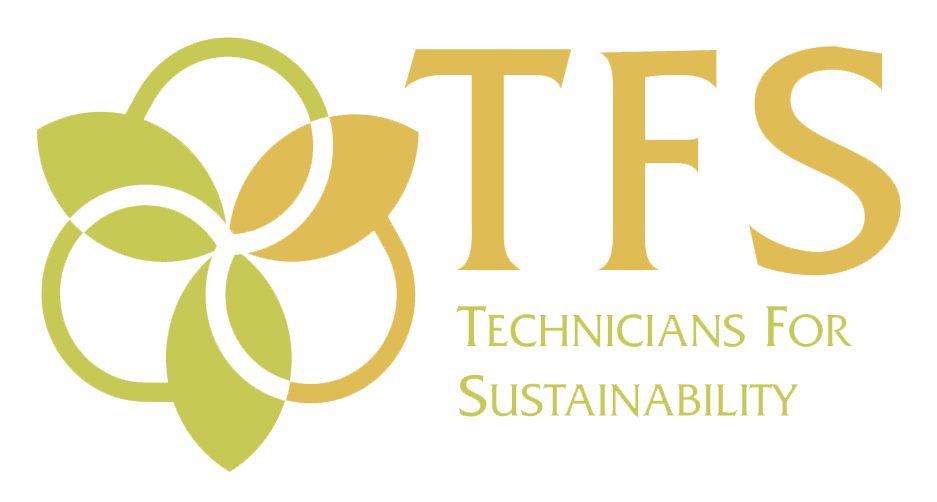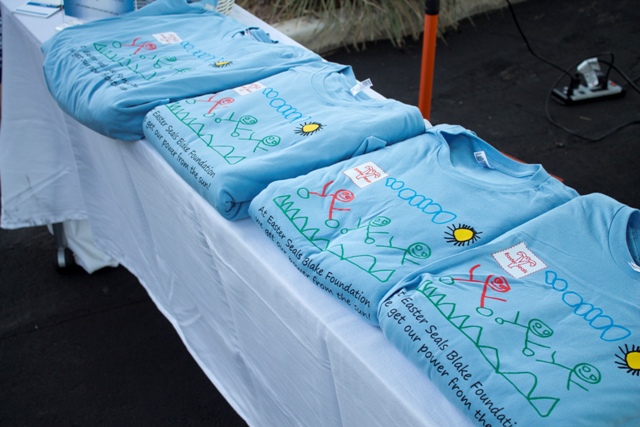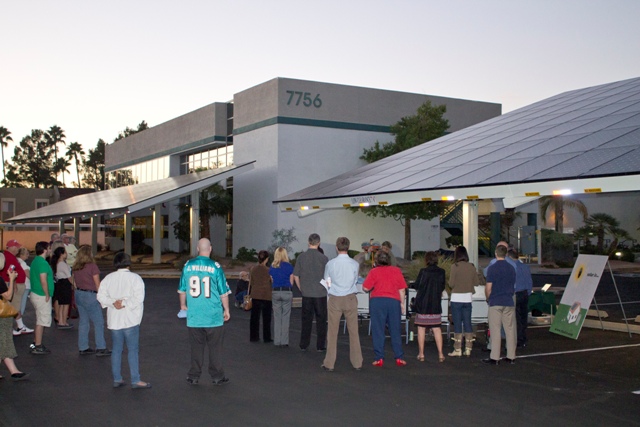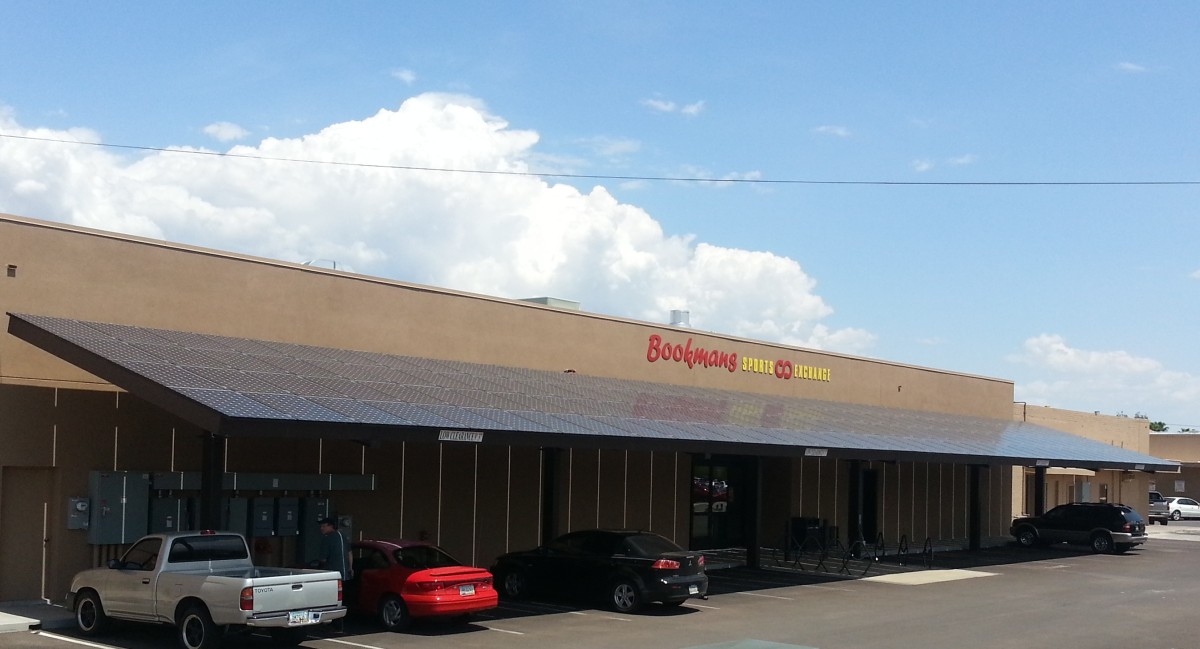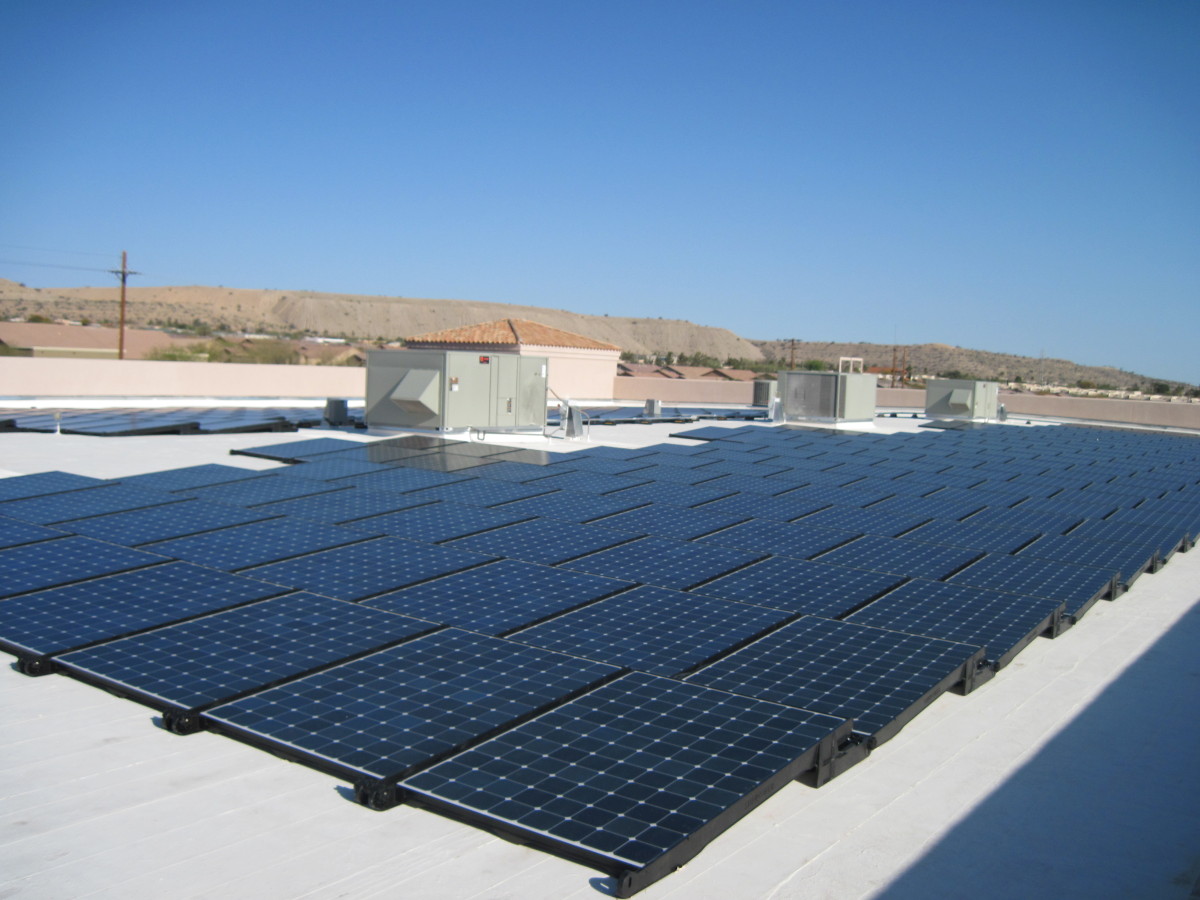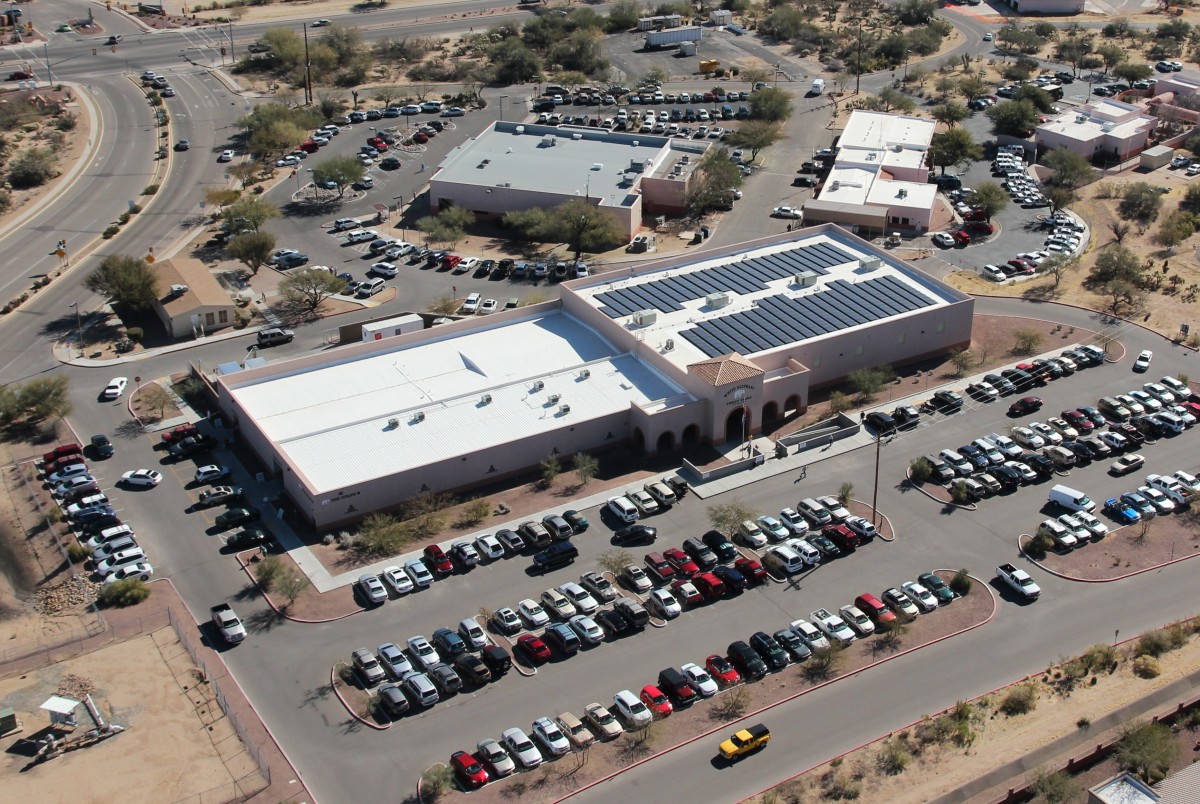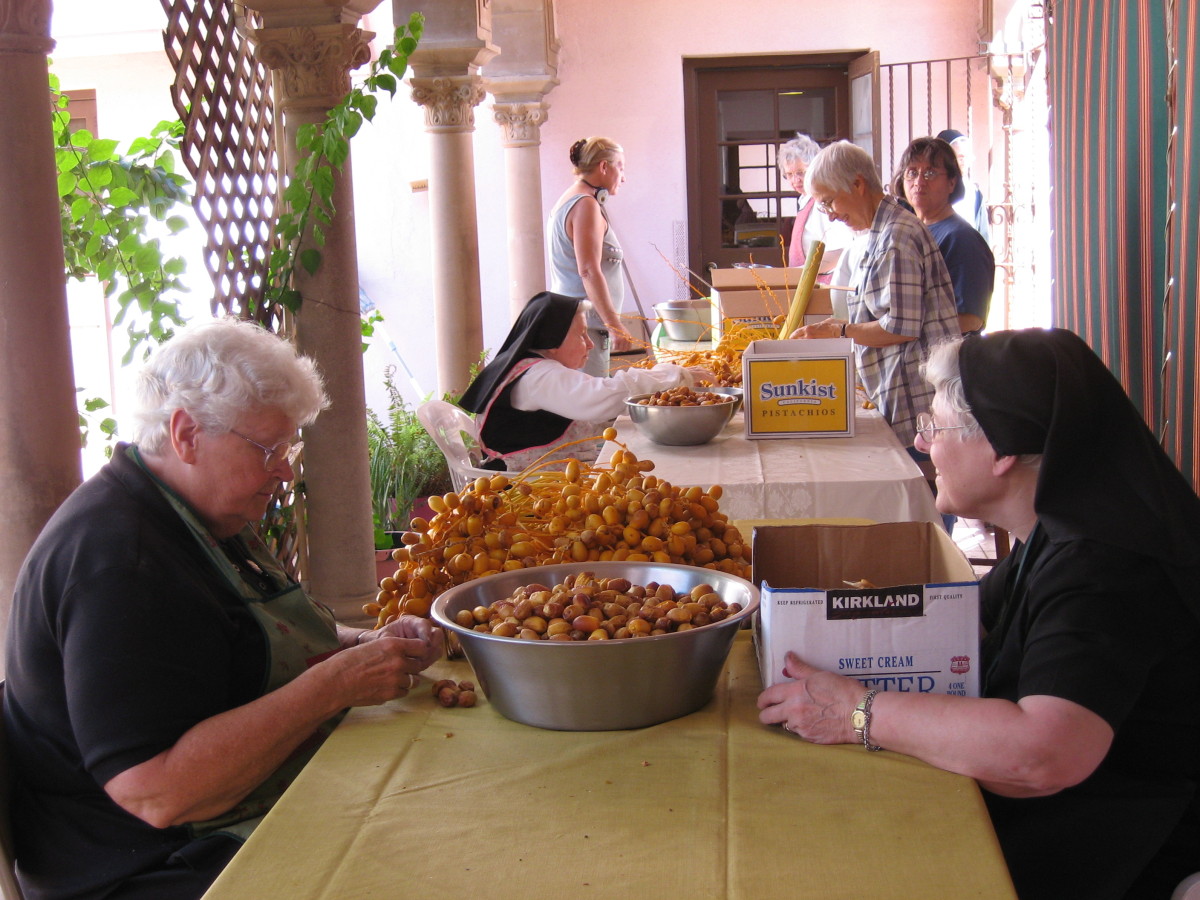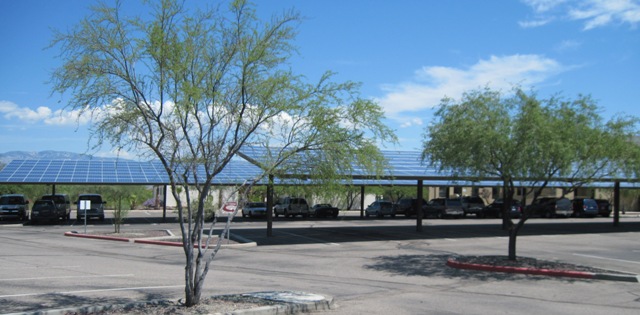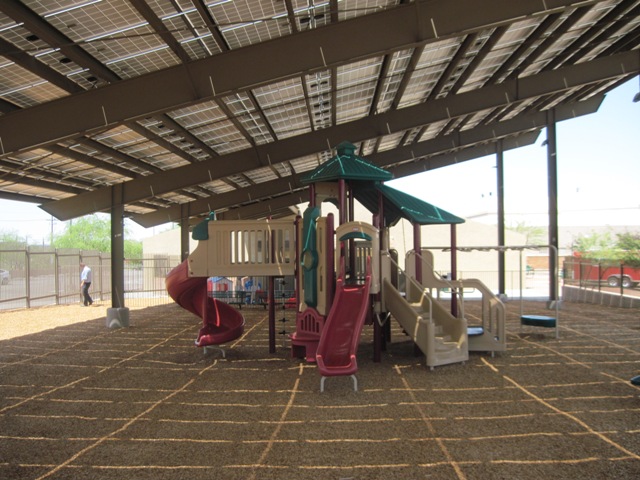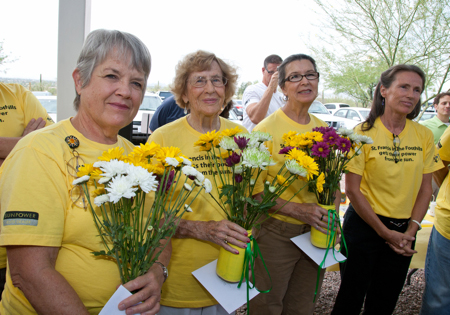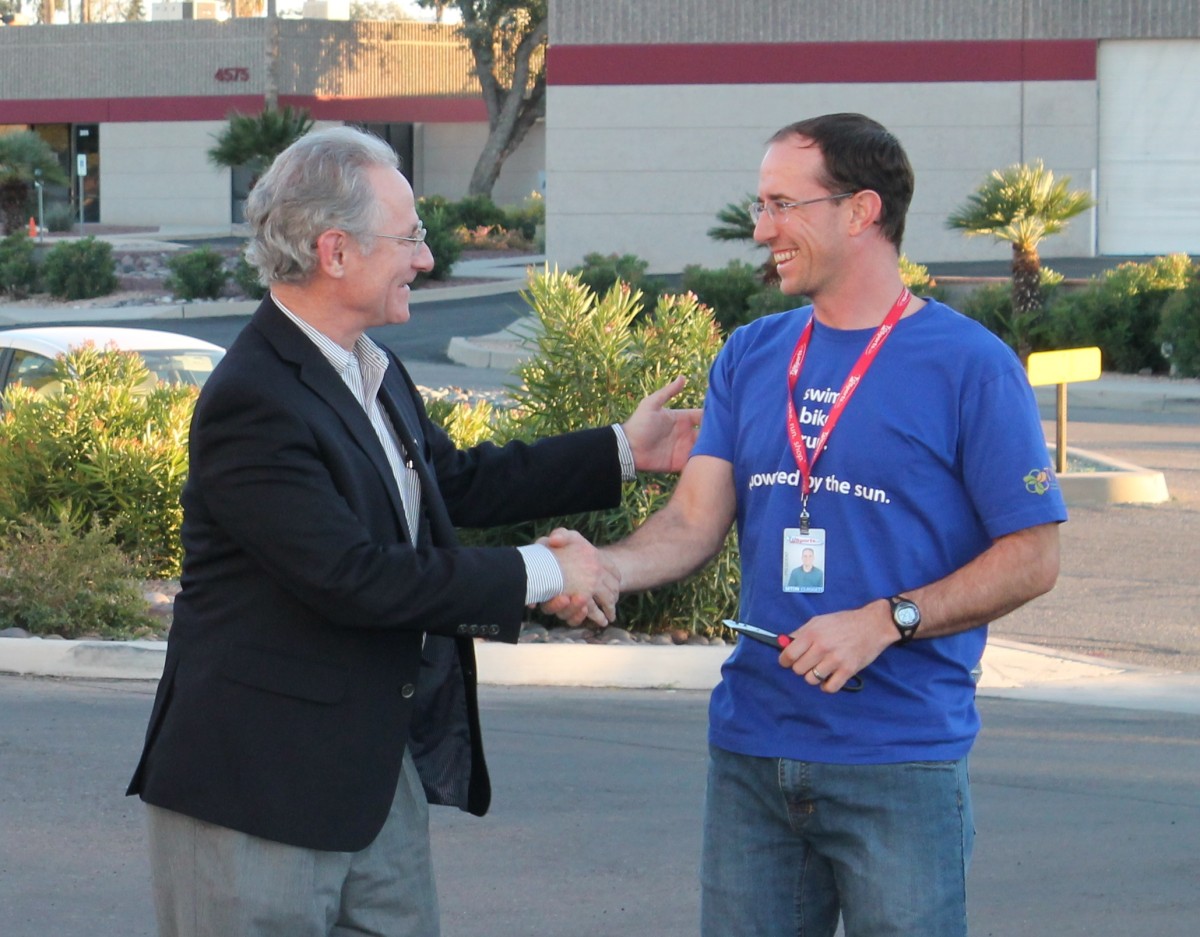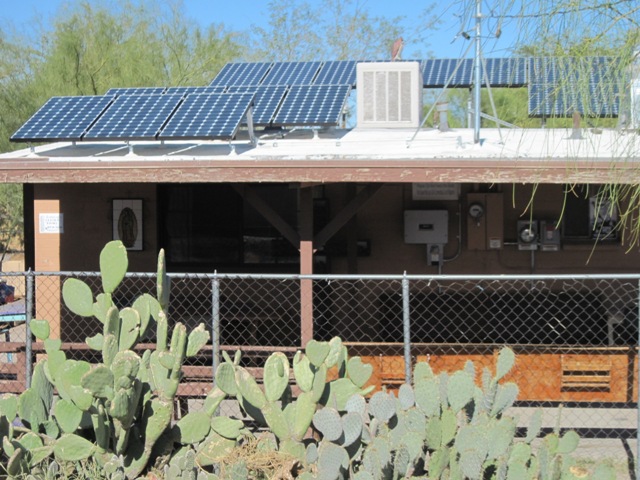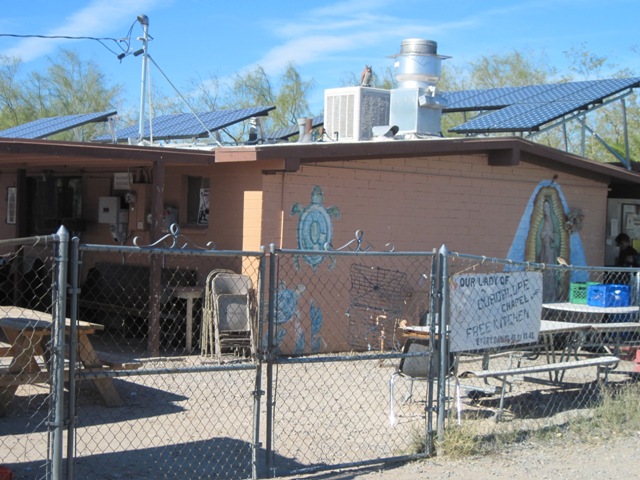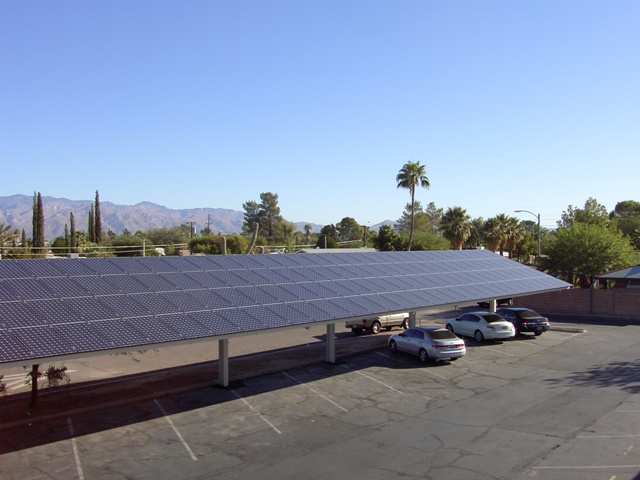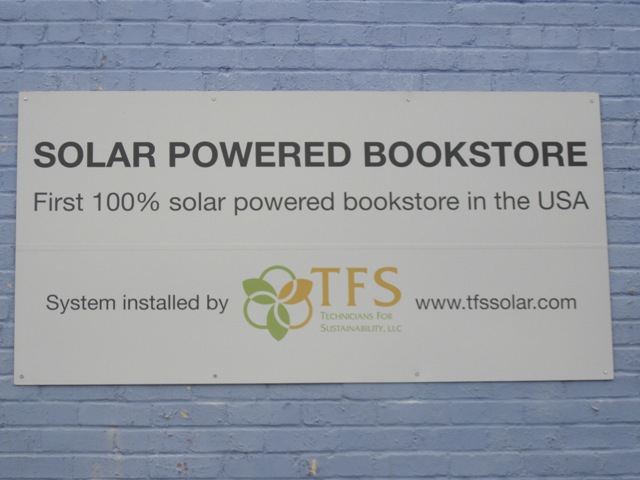 Easter Seals Blake Foundation now has a 346 kW system, which covers over 100 parking spaces, to power the Foundation’s 50,000 square foot campus.
The steel structures provide shade for a large portion of the parking lot and incorporate high-efficiency solar panels made by industry-leader SunPower®. Notably, using these high-efficiency SunPower®panels allowed TFS to design a system that will deliver over 30 percent more energy than conventional panels would allow at this site.
Easter Seals Blake Foundation now has a 346 kW system, which covers over 100 parking spaces, to power the Foundation’s 50,000 square foot campus.
The steel structures provide shade for a large portion of the parking lot and incorporate high-efficiency solar panels made by industry-leader SunPower®. Notably, using these high-efficiency SunPower®panels allowed TFS to design a system that will deliver over 30 percent more energy than conventional panels would allow at this site.
Easter Seals Blake Foundation CEO Ema Kammeyer said, “Technicians For Sustainability have a vast comprehension of this technology, yet they convey it seamlessly to non-tech audiences. They really made it accessible and understandable for our board to have complete confidence in moving forward with this installation. True professionals.”
 While cost has long been perceived as a barrier to “going green”, TFS assisted the Easter Seals Blake Foundation in securing financing for the project that, due in part to federal and TEP incentives, will have no upfront costs to the organization. Also, the Foundation reports it anticipates that after eleven years the cost of electricity at the campus will be virtually nothing, with a projected $600,000 - $1,000,000 in savings over the next twenty years alone. The savings would be enough to offset state budget cuts and provide 50 working poor families, every year, with tuition
While cost has long been perceived as a barrier to “going green”, TFS assisted the Easter Seals Blake Foundation in securing financing for the project that, due in part to federal and TEP incentives, will have no upfront costs to the organization. Also, the Foundation reports it anticipates that after eleven years the cost of electricity at the campus will be virtually nothing, with a projected $600,000 - $1,000,000 in savings over the next twenty years alone. The savings would be enough to offset state budget cuts and provide 50 working poor families, every year, with tuition 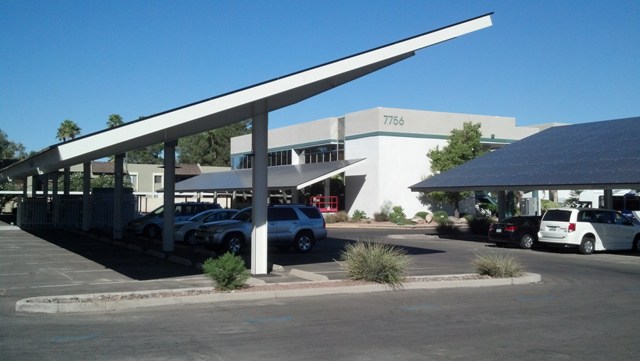 assistance to its nationally accredited childcare program.
assistance to its nationally accredited childcare program.
In addition to the financial benefits, the move to solar reinforces Easter Seals Blake Foundation’s organization-wide mindset of environmental accountability.
"Tucson will be a better place to live because of the forward looking vision of organizations like Easter Seals Blake Foundation,” said TFS President, Kevin Koch. “Not only are they lowering their operating costs for the long term, enabling them to serve the community more effectively, but they are building a cleaner future for our community by producing their electricity with solar energy.”
